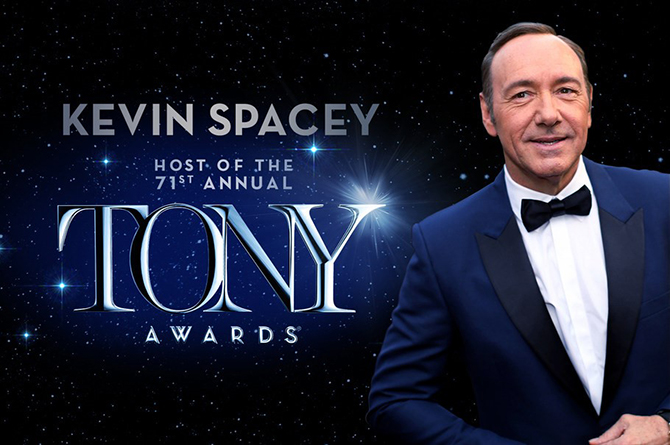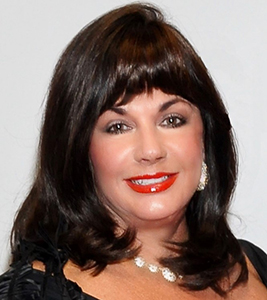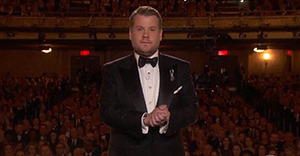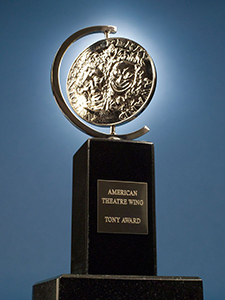THE TONYS CELEBRATE 71 YEARS

By Pat Collins
With 71 years of recognizing excellence in theater, I asked Heather Hitchins, President of the American Theater Wing, and Charlotte St. Martin, President of the Broadway League, about how their organizations’ respective missions changed over time. How the ceremony has evolved over the seventh decade, and how the producers decided what changes to make in the aftermath of last year’s tragic events in Orlando which happened the night before the Tony Awards.
Pat Collins: How have your respective organizations evolved since their beginnings? Specifically, how have their commitments to theater evolved?
 Charlotte St. Martin
Charlotte St. MartinHeather Hitchens: The American Theatre Wing began as a War Relief effort spearheaded and staffed by women of the stage who used celebrity and philanthropy as a way to advance their activist cause. After the end of the Second World War, the Wing’s cause became the advancement of theater itself, and ever since we have been investing in strong work, supporting creative growth, and celebrating excellence. From sending the most promising British student victims of the war to study theatre in the U.S. in 1941, to our newest Andrew Lloyd Webber Scholars who will begin studies at Universities across the country this fall. What has not changed is the Wing’s fierce belief that the theater can be a powerful force for social good. In fact, six years before Truman integrated the Armed Forces, the American Theatre Wing’s Stage Door Canteen committee instituted an interracial policy to provide equal support for all soldiers—regardless of who protested. Today, our commitment to supporting theater as a mechanism for progress remains at the core of our mission, and our goal is to bring diverse stories to our national culture through theater.
PC: How has the Tony Awards ceremony evolved from a banquet at the Waldorf to a brilliantly produced televised award show?
 James Corden
James CordenCM: What started as an intimate banquet hall presentation for just a room full of theater professionals has, over the past 71 years, grown to be a truly international celebration of the best of Broadway. The show you see on television each year, with its full-scale production, A-List hosts and presenters, and dozens of live musical numbers, bears little resemblance to what you would have seen at the Waldorf all those years ago. But what hasn’t changed is the sense of community. The community has gotten much larger, and now spans continents, but the Tony Awards still have the feeling of a group of like-minded, passionate theater-lovers celebrating their favorite art form.
PC: In the wake of the Orlando tragedy last year, what do you remember about the Tony Awards from that day and what message do you hope the Awards bring this year?

CM: The tragedy that occurred in Orlando on the morning of June 12th was unfathomable. There was a moment during that morning’s dress rehearsal when we considered canceling the telecast, but it very quickly became clear that we could use the ceremony to broadcast our message of love and inclusion. It was an opportunity to stand together, pay tribute to the lives that were lost, provide a little diversion for a nation in mourning, and hopefully inspire young theater lovers in the process. Almost every single person working in the theater today can talk about a moment when they were young, at home, watching the Tony Awards, and how that moment inspired them to pursue their craft. The message we continue to share is that theater inspires us all in different ways, and we invite everyone to join us in being inspired through Broadway at the Tony Awards.
Kevin Spacey who won a Tony for Lost In Yonkers will host the June 11th Tony Awards on CBS.







